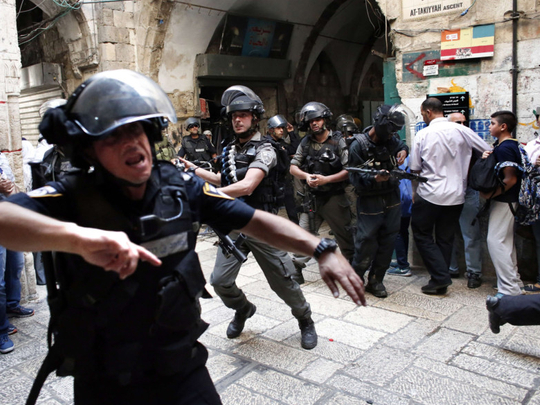
Gulf countries must of course accommodate Arabs and Africans fleeing wars in their countries. However, it is important to look at the entire picture and not just rely on people who seek to serve their own interests or reporters who only know part of the truth, said Asharq Al Awsat.
“A large percentage of the funds spent by international organisations and received by governments who host refugees, such as Lebanon and Jordan, come from Gulf countries. As for hosting refugees, ever since the Arab Spring erupted, Gulf countries have received thousands of refugees via family reunification and fast-track employment programmes. The number of refugees Europe has agreed to take in remains humble compared with the numbers who have sought refuge in Jordan, Lebanon and Turkey. And it is less than the number of refugees who have quietly found their way to Gulf countries. Despite this, we must thank countries such as Germany for their humanity.”
Those who flee from war, destruction or terrorism may look for a safe place that is close by or far. However, when locations nearby are no longer secure or capable of taking in people, naturally, migrants will start looking to the distant places, said UAE’s Al Khaleej. “The European nations were those far and secure places. The European countries now face an impasse because they are unable to take in such an unexpectedly large number of migrants who are fleeing from death and poverty. To begin with, the European governments, to varying degrees, are responsible for this impasse and the situation in Arab nations, and therefore it is an ethical obligation for these countries to assist refugees and then find a feasible political solution to restore stability and security in Arab countries.”
Meanwhile, Qatar’s Al Sharq newspaper wrote that Israel’s continued aggression against Al Aqsa mosque was unacceptable, and silence was no longer an option when it came to the continued storming of the mosque by security forces and colonists.
“Sacred Muslim and Christian sites are a red line that cannot be crossed, and their protection is everyone’s duty. The United Nations, Organisation of Islamic Conference, Al Azhar Mosque, Arab League and the Palestinian National Authority shoulder the biggest responsibility of protecting these sacred sites. This continued aggression fuels and provokes the emotions of millions of Muslims around the world and also aims to raise tension in the region. It is important for major countries, the UN and international organisations to shoulder their responsibility in order to put a stop to this dangerous Israeli aggression, and Muslim peoples and governments must support and defend Al Aqsa Mosque.”
This is not the first time the Zionists have stormed Al Aqsa mosque, and it is a sight that one cannot get used to because it’s a flagrant violation of a sacred Islamic site, said Oman’s Al Watan. “The Palestinian people, with their bare hands, were still able to thwart attacks from a variety of weapons wielded by the racist Zionists storming Al Aqsa mosque. The Zionists have crossed the line with their actions, infiltrating the West Bank with colonies and setting up more than 600 checkpoints in it. The Israeli occupation should know that in the near future, their brutality will definitely be responded to in kind.”





_resources1_16a31069e4e_small.jpg)






